Space exploration news, features and articles
Latest about Space Exploration
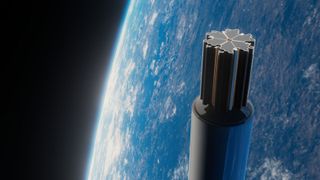
US company to use giant spinning cannon to blast hundreds of pancake-like 'microsatellites' into space
By Harry Baker published
Rocket start-up SpinLaunch wants to catapult hundreds of flattened "microsatellites" into space at once, using a cannon-like machine that accelerates objects by spinning them. The first orbital demonstration is scheduled for next year.

Secretive Russian military satellites release mystery object into orbit
By Andrew Jones published
The classified Kosmos satellite trio has sparked intrigue in space-tracking circles.

Watch a private German rocket explode during 1st orbital launch attempt from European soil (video)
By Mike Wall published
A dramatic video shows Isar Aerospace's first orbital launch attempt, which ended with a fiery crash into the frigid sea about 30 seconds after liftoff.
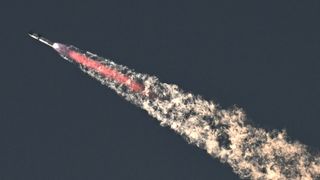
NASA signs new contract to use SpaceX's Starship — even though it keeps blowing up
By Harry Baker published
SpaceX's Starship has been awarded a NASA contract that will allow it to be considered for future missions. However, recent explosive tests have shown the supersized spacecraft is still far from mission-ready.

NASA's SPHEREx telescope 'opens its eyes on the universe', taking stunning debut image of 100,000 galaxies and stars
By Ben Turner published
SPHEREx's first images — containing roughly 100,000 points of light stars, galaxies and nebulae — have confirmed that the telescope is working according to its design.
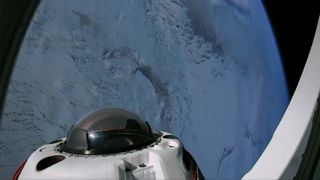
'A notch above a gimmick': Experts question scientific merit of billionaire's Fram2 'space adventure' around Earth's poles
By Harry Baker published
The recently launched Fram2 mission, which is funded and led by cryptocurrency billionaire Chun Wang, will attempt to grow mushrooms, test out hormone diapers and X-ray civilian astronauts. However, experts say that these novel experiments are unlikely to yield meaningful results.

China now has a 'kill mesh' in orbit, Space Force vice chief says
By Josh Dinner published
"That capability gap is significantly narrowed, and we've got to change the way we're looking at space, or that capability gap may reverse and not be in our favor anymore."
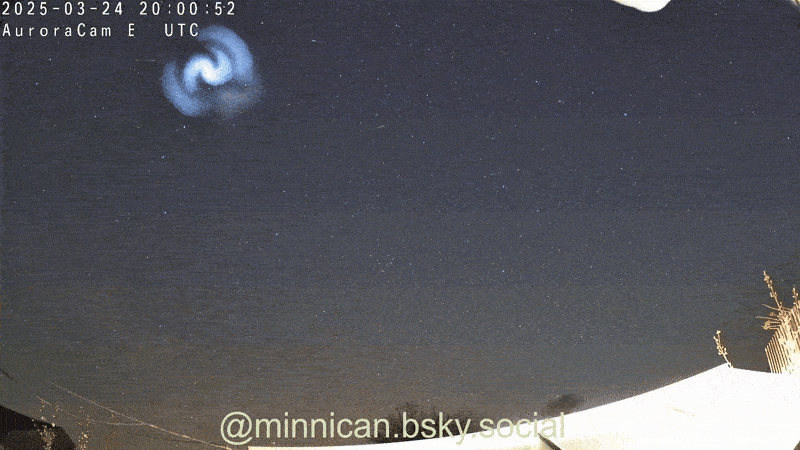
Dying SpaceX rocket triggers giant spiral of light above UK and Europe during secret mission
By Harry Baker published
A giant whirlpool of light, known as a "SpaceX spiral," was recently spotted swirling across the night sky over Europe as a Falcon 9 rocket prepared to reenter Earth's atmosphere after deploying top-secret cargo.

NASA astronauts Suni Williams and Butch Wilmore spent 286 days stuck in space — is that a new record?
By Brandon Specktor last updated
NASA astronauts Butch Wilmore and Sunita Williams spent 286 consecutive days aboard the International Space Station after their Boeing Starliner spacecraft returned to Earth empty. Is their extended spaceflight record-setting?
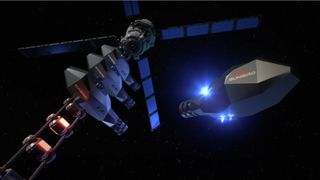
Futuristic, 'alien-like' nuclear fusion rockets developed in total secret could revolutionize space travel — if they actually work
By Harry Baker published
U.K. start-up Pulsar Fusion has unveiled plans to build a fleet of reusable nuclear fusion-powered rockets, known as Sunbirds, that could cut journey times across the solar system in half. But not everyone is convinced.
Get the world’s most fascinating discoveries delivered straight to your inbox.
 Live Science Plus
Live Science Plus





